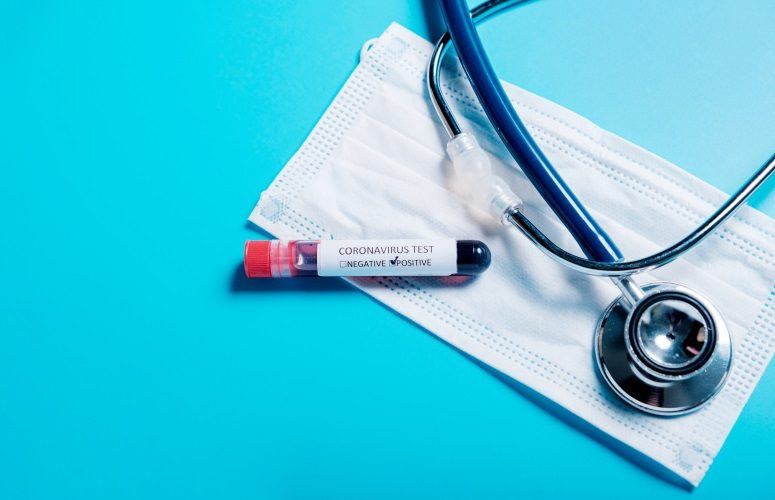
SBA Lenders to the Rescue
Banks deliver financial assistance backed by US Small Business Administration guarantees.
By Ron Marsico, Contributing Writer On Dec 9, 2020Amid the economic havoc wrought by COVID-19, many New Jersey small businesses are grabbing lifelines from the federal Small Business Administration (SBA) and local banks.
America’s banks were among the villains of the 2008 Great Recession. However, they are redeeming themselves in the 2020 downturn by partnering with the SBA via loan programs, including the Paycheck Protection Program (PPP), which is helping small businesses move forward to the pandemic’s other side.
The SBA is further helping by paying six months of borrowers’ current principal, interest and fees on its most popular loans, as part of its coronavirus debt relief.
During typical times, the SBA and banks team up to assist small businesses with various loan options – most notably the 7(a) – to provide them with capital to get going, keep going, and retain more cash to reinvest and expand operations. During the current pandemic, vital PPP injections allowed small businesses to keep paying their workers, with the loans forgiven by meeting key requirements.
“With every 7(a) loan I make, I get to feel the emotion that small business owners feel, because we’re helping them make their dream come true,’’ says Pamela Frie, Lakeland Bank’s SBA lending team leader and a senior vice president.
But, with typical SBA loans down from pre-pandemic projections, Lakeland made more than 2,000 PPP loans totaling approximately $327 million – the most in the Garden State – to help small businesses keep staff employed, Frie says. The enormous endeavor brought all-hands-on-deck help from Frie’s colleagues, far beyond just her SBA team.
“The entire bank got to feel that [emotion] when we were able to tell a customer, ‘Hey, your PPP loan was approved,’’’ Frie recalls. “And you hear the emotion in the borrower – or the customer – because we’re helping keep their employees employed, we’re helping keep their business open.’’
Other New Jersey banks threw small businesses and their workers PPP life preservers as well.
Kearny Bank, with its headquarters and most branches located in New Jersey, made approximately 1,000 PPP loans, totaling more than $80 million, according to bank figures.
“All the banks that were going to participate kind of had to learn it on the fly,’’ says Robert Melchionne, Kearny Bank’s senior vice president/director of commercial and industrial lending. “We’re not all payroll administrator experts, but we did it with some speed.’’
Wells Fargo made roughly 194,000 PPP loans nationwide totaling $10.5 billion, with 84% of the companies having fewer than 10 employees, according to bank statistics. In New Jersey, Wells Fargo tallies more than 7,100 PPP loans, totaling $401 million.
“We played a really huge role in getting these funds out to small businesses that desperately needed the money,’’ says Jon Kaye, east area sales manager, Wells Fargo SBA Lending. “Had we not been able to pull this off, it would have been much more devastating.’’
Despite the overall downturn in SBA loans due to the health crisis, Wells Fargo, Kearny and Lakeland’s bankers all say they are seeing promising upticks since summer.
“The pandemic obviously hurt loan demand, and it resulted in lower loan volumes, especially SBA loans,” says Melchionne of Kearny Bank. “We are seeing demand pick back up. And right now, we have a very healthy pipeline of new money SBA loans.”
The SBA, created in 1953 to set loan guidelines and work with lenders, bills itself as “fully dedicated to small business and providing counseling, capital and contracting expertise as the nation’s only go-to resource and voice for small businesses.’’
By providing loan guarantees, the SBA reduces risks for banks and other lenders, which enhances their ability to gain capital and expand lending portfolios. SBA thus reduces hurdles for small businesses – which may not qualify for conventional loans – to obtain financing for a variety of purposes.
Along with the 7(a), the 504 is another popular SBA loan program, with both providing small companies up to $5 million in financing with favorable rates and requirements.
Kaye of Wells Fargo describes the 7(a) as “the kitchen sink’’ of SBA loan programs, offering financing for an array of uses like working capital, buying an existing business, and furniture/fixtures. The 504, he notes, is dedicated to purchases of real estate or equipment.
“It’s really just a great way for us to connect with our business owners out there and help them access capital … to be able to grow their business,” Kaye explains. “The SBA loan program fits in nicely with the other suite of products we offer our customers through the community bank.”
SBA features are particularly attractive, Kaye explains, because they provide reduced down payments, lower monthly payments, and longer terms – typically 10 years for working capital and 25 years for real estate.
“The whole intent behind the program is to make it easier for small businesses to be able to control their own growth,” Kaye explains.
In New Jersey, Kaye says Wells Fargo’s SBA clients include healthcare, manufacturing, wholesale, retail and business services companies, with most loan requests this year involving commercial real estate purchases due to low interest rates.
He recounts the bank helping a medical testing company in the state buy a larger space when the pandemic hit. With the company suddenly pivoting to COVID-19 testing, the bank approved additional funds for virus testing equipment, he recalls.
Frie, who came to Lakeland Bank two years ago to expand its SBA loan program, says the recent increase in traditional SBA loan activity is promising. For the 7(a) program, she already is expecting Lakeland to exceed $10 million in loans for the 2021 federal fiscal year that began Oct. 1 – more than double the prior 12 months.
“We want to be able to be the bank of choice that these small businesses can go to,’’ Frie says. “So, it isn’t just about the loan. It’s about the deposit accounts. It’s about the merchant services we can offer. It’s about the online banking tools and the financial services. We have investment services as well.”
Melchionne of Kearny Bank, meanwhile, has some advice for small business entrepreneurs seeking SBA loans.
“You’ve got to have a business plan in place. The SBA loves to understand – not just the numbers – but the inside baseball stuff and learn about what does management and ownership foresee for this company,’’ Melchionne says.
Critical components, he explains, include a detailed understanding of how to bring products and services to market, budget forecasting, and identification of capital sources.
Melchionne adds, “It’s really having a focus and knowing where you’re going on both a short- and long-term basis.’’
To access more business news, visit NJB News Now.
Related Articles:





